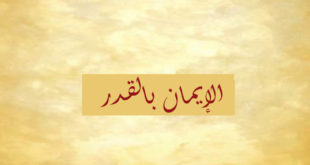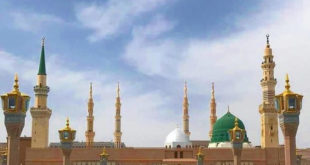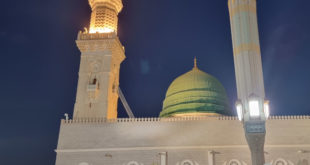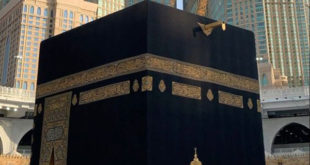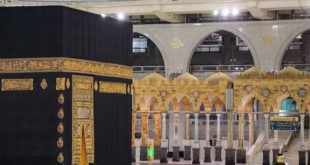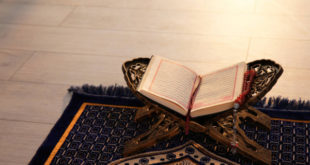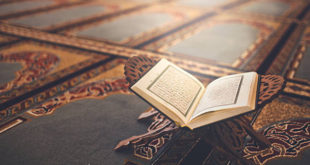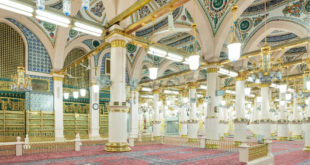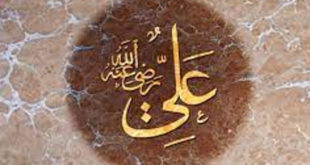Hazrat Mufti Ebrahim Salejee (Daamat Barakaatuhu) mentioned: Each person should work within his capacity to bring about the correct Islamic values in his life and create the Islamic spirit and ethos in his environment. Others in other parts of the world are doing their jihaad, so we too should do …
Read More »Recent Posts
November, 2020
-
17 November
A Legacy that Will Earn One Tremendous Rewards – The Orchards of Love – Part Seven
A Legacy that Will Earn One Tremendous Rewards The father of Nabi Yunus (‘alaihis salaam) was a pious man named Mattaa. He and his wife, for a long time, desired that Allah Ta‘ala bless them with a son and depute him as a Nabi to the Bani Israa’eel. Finally, they …
Read More » -
16 November
Beliefs regarding Taqdeer (Predestination)
1. Taqdeer refers to the absolute and complete knowledge of Allah Ta‘ala. In other words, Allah Ta‘ala has complete knowledge of everything and every occurrence, whether good or bad, or whether the past, present or future, before its occurrence.[1] 2. Allah Ta‘ala has given human beings the ability to do …
Read More » -
16 November
The Unending Rewards of the Hereafter
Hazrat Moulana Muhammad Ilyaas (rahmatullahi ‘alaih) once mentioned the following: In the Qur’aan Majeed, the example of those who spend in the path of Allah Ta‘ala is compared with the example of a person who sows a single seed from which seven hundred grains are harvested. Allah Ta‘ala mentions: مَثَلُ …
Read More » -
13 November
Business Q&A (Part 10)
Components of a valid sale (Part 10) Speaker: Ml. Ebrahim Salajee Duration: 00:01:19 Format: mp3 Size: 558 KB Download If you did not understand the maslah or any aspect of the maslah, then refer your question to Muftionline.co.za
Read More »
-
The Brother-in-law of Rasulullah (sallallahu ‘alaihi wasallam)
Hazrat Talhah (radhiyallahu ‘anhu) was married to four wives. Each of his four wives was …
Read More » -
The Compass of the Hearts of the Sahaabah (radhiyallahu ‘anhum) – The Tolerance of Rasulullah (sallallahu ‘alaihi wasallam) – The Orchards of Love – Part Seventy Four
-
Tafseer of Surah Naazi’aat
-
The Extreme Generosity of Hazrat Talhah (radhiyallahu ‘anhu)
-
Securing the Blessings of Ramadhaan, Umrah and Hajj – The Tolerance of Rasulullah (sallallahu ‘alaihi wasallam) – The Orchards of Love – Part Seventy Three
-
Receiving Seventy Rewards
Hazrat Abdullah bin Amr bin Aas (radhiyallahu ‘anhuma) reported, “Whoever sends salutations upon Nabi (sallallahu ‘alaihi wasallam) once, Allah Ta‘ala and His angels will send seventy mercies and blessings upon him in return of his one Durood. Hence, whoever wishes to increase his Durood should increase it, and whoever wishes to decrease his Durood should decrease it (i.e. if he wants to earn great rewards, then he should increase his Durood).”
Read More » -
Increase in Sustenance
-
The Reward of Fasting on the Day of Arafah
-
The Angel that Stands at the Blessed Grave of Hazrat Rasulullah (sallallahu ‘alaihi wasallam) to Convey the Durood of the Ummah
-
Reciting Durood when Entering the Musjid
-
Sunnats and Aadaab of the Host – 3
3. Generosity and feeding the creation was a salient quality and attribute of all the …
Read More » -
Sunnats and Aadaab of the Host – 2
-
Sunnats and Aadaab of the Host – 1
-
Sunnats and Aadaab which every person needs to adhere to in his individual life – 9
-
Sunnats and Aadaab which every person needs to adhere to in his individual life – 8
-
Hazrat Ali (radhiyallahu ‘anhu) – Part Forty-One – Being Sent by Rasulullah (sallallahu ‘alaihi wasallam) to Level the Graves, Destroy Idols and Erase Pictures
Hazrat Ali (radhiyallahu ‘anhu) reports that on one occasion, Rasulullah (sallallahu ‘alaihi wasallam) attended a …
Read More » -
Rasulullah (sallallahu ‘alaihi wasallam) Approving of the Verdict of Hazrat Ali (radhiyallahu ‘anhu) – Part Forty
-
The True Ulamaa – Hazrat Ali (radhiyallahu ‘anhu) – Part Thirty Nine
-
Du‘aa for Assistance in Settling Debts – Hazrat Ali (radhiyallahu ‘anhu) – Part Thirty Eight
-
The Concern of Hazrat Ali (radhiyallahu ‘anhu) regarding Business being Conducted According to the Islamic Principles – Part Thirty Seven
 Ihyaaud Deen An Effort to Revive Deen in Totality
Ihyaaud Deen An Effort to Revive Deen in Totality


